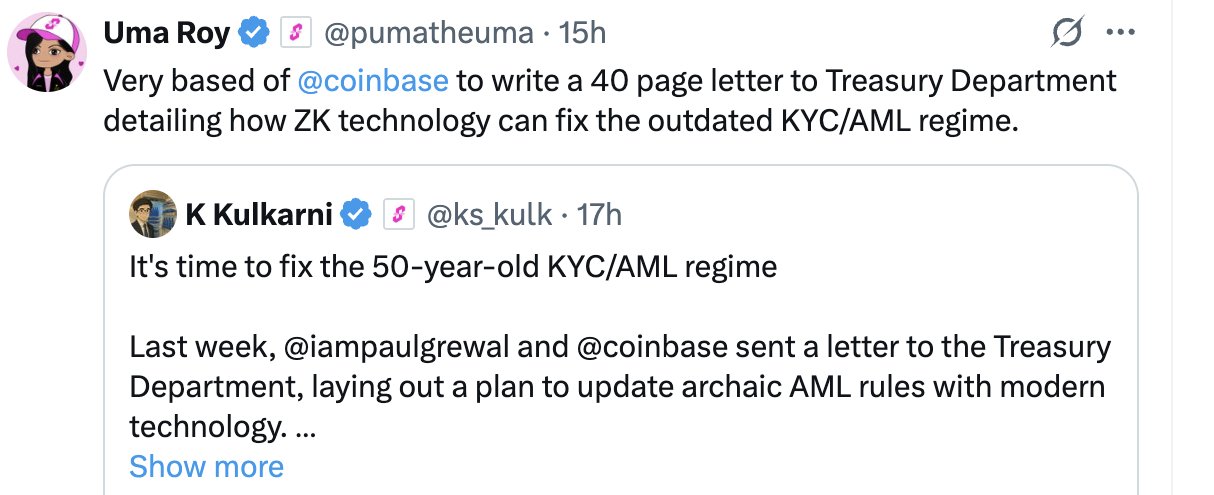.png)
The @coinbase exchange has submitted a formal response to the U.S. Department of the Treasury’s Request for Comment on Innovative Methods to Detect Illicit Activity Involving Digital Assets.
The exchange insists that existing anti-money-laundering (AML) and know-your-customer (KYC) regulations are outdated, data-heavy, and prone to abuse. The solution it proposes is the introduction of zero-knowledge proofs and decentralized identifiers (DIDs) as compliant, privacy-preserving verification methods under the Bank Secrecy Act.
This marks one of the first policy-level efforts by a major U.S. institution to legitimize ZK as regulatory infrastructure.

Coinbase’s letter describes the current compliance system as “archaic”. Every regulated entity repeatedly collects and stores copies of user documents, creating unnecessary attack surfaces and inconsistent verification standards.
The company argues that this model - built on static documents and centralized databases - cannot scale with a global, digital economy.
Zero-knowledge proofs offer a technical remedy: they allow a user to prove facts about their identity (for example, jurisdiction, age, or sanctions status) without exposing underlying personal data. Coinbase positions ZKPs as a means to meet regulatory requirements without perpetuating surveillance or privacy risk.
Coinbase’s recommendations to the Treasury and Congress include:
In short, Coinbase advocates a compliance model where verification is based on cryptography rather than a documentary-based system.
The significance of this letter extends beyond compliance reform. It reframes ZK as a regulatory enabler.
If adopted, these proposals would:
This represents a potential inflection point for ZK, moving from experimental cryptography to standard infrastructure in financial regulation.

Zero-knowledge systems have long been associated with anonymity and privacy. Coinbase’s submission changes that framing: ZK becomes a tool for verifiable privacy - ensuring compliance without exposure.
This interpretation aligns with a broader industry movement toward compliant privacy, where users maintain control over personal data while regulators retain the ability to request disclosure under due process.
The result would be transparency for systems, privacy for individuals.
The Coinbase letter may not immediately alter regulation, but it sets a precedent. It signals that:
This is the first visible bridge between ZK cryptography and U.S. regulatory frameworks.
If regulators accept this model, verification could evolve from document exchange to cryptographic attestation - an internet-native system of trust that satisfies both privacy and oversight.
That possibility places ZK at the center of a new paradigm: as a mechanism to prove selectively, securely, and verifiably.
ZK is becoming mainstream infrastructure.